Nori Human PIIINP ELISA Kit
$461.00 – $832.00
This ELISA kit is for quantification of PIIINP in human. This is a quick ELISA assay that reduces time to 50% compared to the conventional method, and the entire assay only takes 3 hours. This assay employs the quantitative sandwich enzyme immunoassay technique and uses biotin-streptavidin chemistry to improve the performance of the assays. An antibody specific for PIIINP has been pre-coated onto a microplate. Standards and samples are pipetted into the wells and any PIIINP present is bound by the immobilized antibody. After washing away any unbound substances, a detection antibody specific for PIIINP is added to the wells. Following wash to remove any unbound antibody reagent, a detection reagent is added. After intensive wash a substrate solution is added to the wells and color develops in proportion to the amount of PIIINP bound in the initial step. The color development is stopped, and the intensity of the color is measured.
Alternative names for PIIINP: N-terminal propeptide of type III collagen
This product is for laboratory research use only not for diagnostic and therapeutic purposes or any other purposes.
- Description
- How Elisa Works
- Product Citations
- Reviews (0)
Description
Nori Human PIIINP ELISA Kit Summary
Alternative names for PIIINP: N-terminal propeptide of type III collagen
| Assay Type | Solid Phase Sandwich ELISA |
| Format | 96-well Microplate or 96-Well Strip Microplate |
| Method of Detection | Colorimetric |
| Number of Targets Detected | 1 |
| Target Antigen Accession Number | na |
| Assay Length | 3 hours |
| Quantitative/Semiquantitative | Quantitative |
| Sample Type | Plasma, Serum, Cell Culture, Urine, Cell/Tissue Lysates, Synovial Fluid, BAL, |
| Recommended Sample Dilution (Plasma/Serum) | No dilution for sample <ULOQ; sufficient dilution for samples >ULOQ |
| Sensitivity | 60 pg/mL |
| Detection Range | 0.31-20 ng/mL |
| Specificity | Natural and recombinant human PIIINP |
| Cross-Reactivity | < 0.5% cross-reactivity observed with available related molecules, < 50% cross-species reactivity observed with species tested. |
| Interference | No significant interference observed with available related molecules |
| Storage/Stability | 4 ºC for up to 6 months |
| Usage | For Laboratory Research Use Only. Not for diagnostic or therapeutic use. |
| Additional Notes | The kit allows for use in multiple experiments. |
Standard Curve
Kit Components
1. Pre-coated 96-well Microplate
2. Biotinylated Detection Antibody
3. Streptavidin-HRP Conjugate
4. Lyophilized Standards
5. TMB One-Step Substrate
6. Stop Solution
7. 20 x PBS
8. Assay Buffer
Other Materials Required but not Provided:
1. Microplate Reader capable of measuring absorption at 450 nm
2. Log-log graph paper or computer and software for ELISA data analysis
3. Precision pipettes (1-1000 µl)
4. Multi-channel pipettes (300 µl)
5. Distilled or deionized water
Protocol Outline
1. Prepare all reagents, samples and standards as instructed in the datasheet.
2. Add 100 µl of Standard or samples to each well and incubate 1 h at RT.
3. Add 100 µl of Working Detection Antibody to each well and incubate 1 h at RT.
4. Add 100 µl of Working Streptavidin-HRP to each well and incubate 20 min at RT.
5. Add 100 µl of Substrate to each well and incubate 5-30 min at RT.
6. Add 50 µl of Stop Solution to each well and read at 450 nm immediately.
Background:
Type III collagen, one of the main components in interstitial matrix, is secreted by fibroblasts and other mesenchymal cells, playing an important role in inflammation-fibrosis associated pathologies in tissue injury. A conventional N-terminal propeptide of type III collagen (PIIINP) epitope can be a marker of both fibrogenesis and fibrolysis. The use of collagen fragments for the assessment of fibrotic disorders is now well established.[1, 2, 3] PIIINP, measured by a number of assays, has been reported as a marker of tissue repair and liver fibrosis in some liver diseases.[4, 5] PIIINP is also a component of Enhanced Liver Fibrosis (ELF), a calculated index consisting of PIIINP, hyaluronic acid and tissue inhibitor of matrix metalloproteinase 1(TIMP 1).[6] ELF has demonstrated variable performance (AUROC 0.76–0.9) in identifying NASH patients with advanced fibrosis. [8,5,7] Tanwar et al. reported that PIIINP levels measured in ELF test were significantly elevated in a cohort of NAFLD patients with advanced fibrosis compared to those with F0-2, and had an AUROC of 0.85 to distinguish simple steatosis vs NASH or F3-4,[5] however, the study did not specifically compare F0-2 vs F3-4 in NASH patients.
References
- Leeming, D. J., et al. (2013) Liver Int 33, 439–447.
- Karsdal, M. A. et al. (2016) Am J Physiol Gastrointest Liver Physiol 311, G1009–G1017.
- Nielsen, M. J. et al. (2013) Am J Transl Res 5, 303–315 (2013).
- Lindsay, K. et al. (2009) Rheumatology (Oxford) 48, 569–572.
- Tanwar, S. et al. (2013) Hepatology 57, 103–111.
- Lichtinghagen, R. et al. (2013) J Hepatol 59, 236–242.
- Guha, I. N. et al. (2017) Hepatology 47, 455–460.
- Younossi, Z. M. et al. (2017) Hepatology, https://doi.org/10.1002/hep.29721.
Product Citations
Be the first to review “Nori Human PIIINP ELISA Kit”
You must be logged in to post a review.























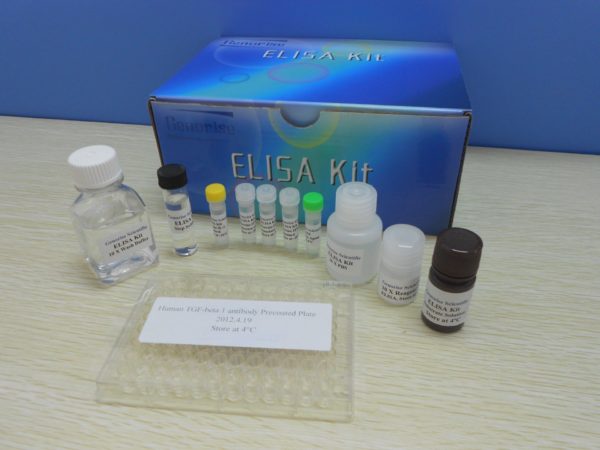
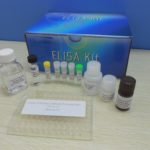
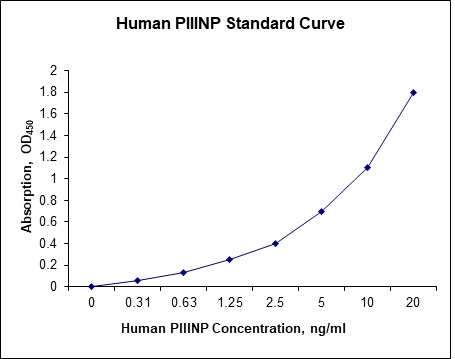
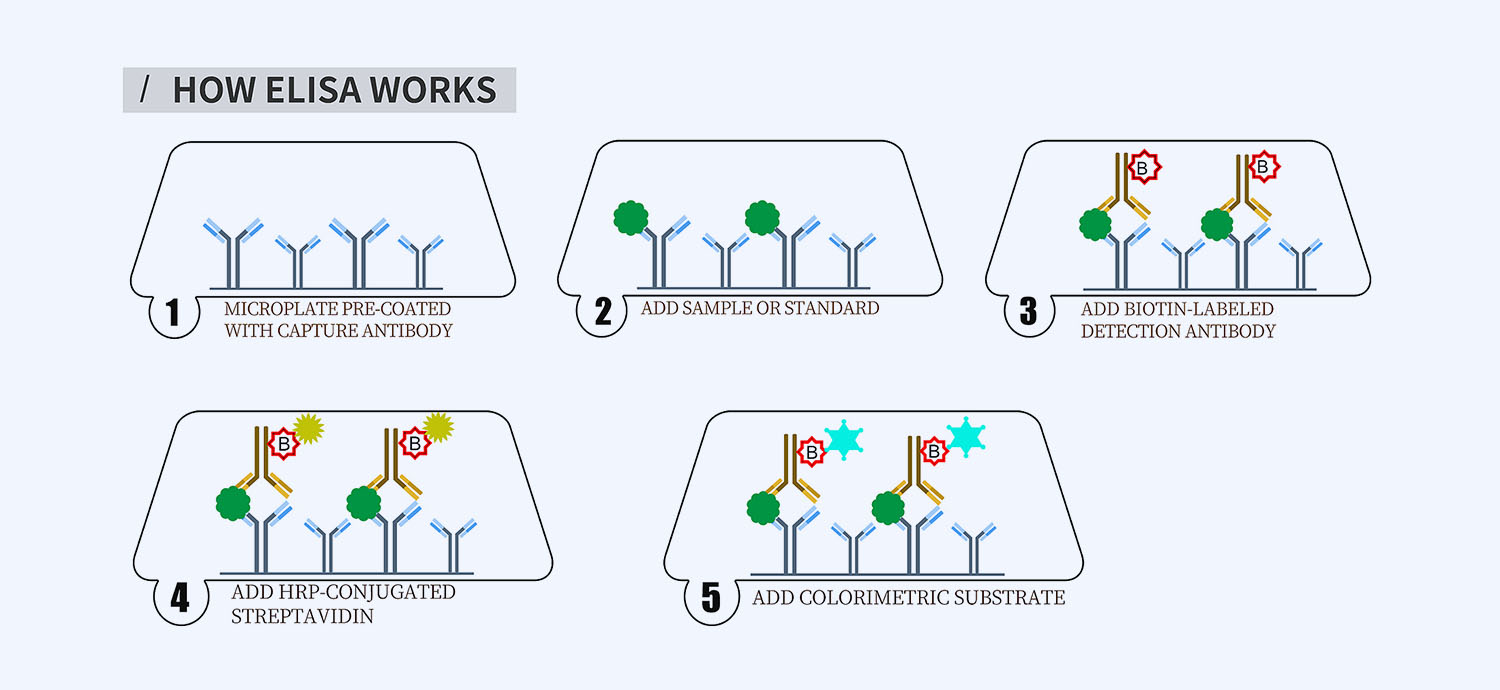
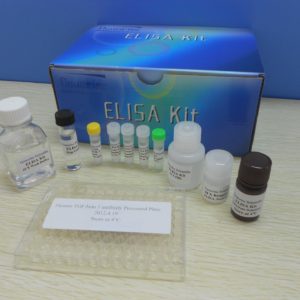
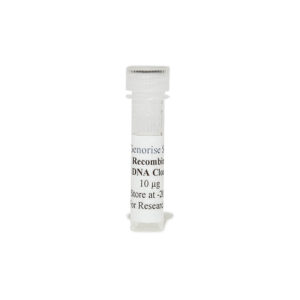
Reviews
There are no reviews yet.